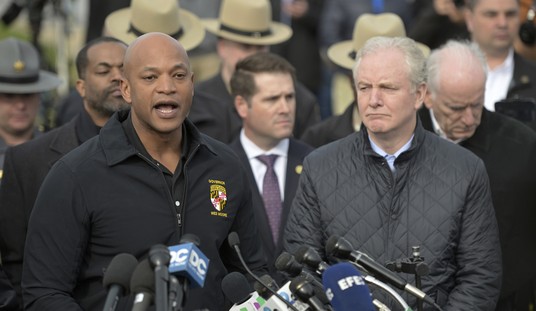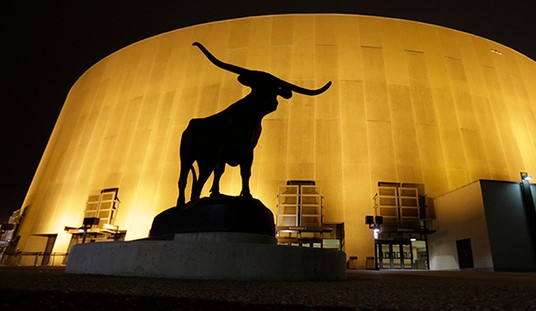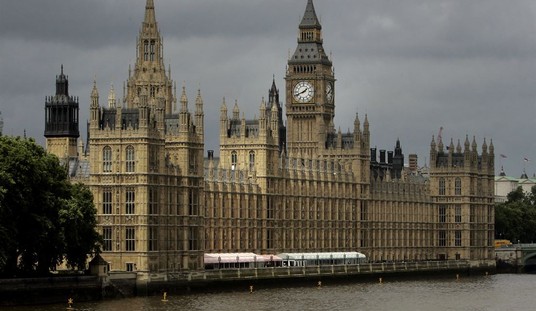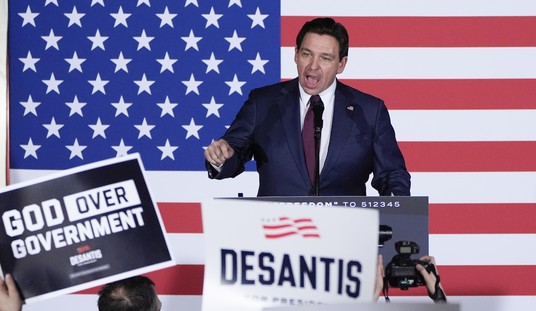The United States plans to expand military cooperation with Poland and Baltic states to show “support” for its allies after Russia’s intervention in Ukraine, Pentagon chief Chuck Hagel said Wednesday.
“This morning the Defense Department is pursuing measures to support our allies,” including expanded aviation training in Poland and increasing the US role in NATO’s air policing mission over Baltic countries, Hagel told lawmakers…
“This is a time for wise, steady, and firm leadership,” Hagel told the Senate Armed Services Committee.
Privately, Western diplomats in Kiev have admitted throughout Ukraine’s crisis that the Kremlin is a big black blot on their map. Russia’s ambassador, Mikhail Zurabov, makes a point of refusing to speak to them. Senior U.S. officials worry their Russian counterparts are not really the ones deciding policy. (Russian officials who spoke to Kommersant Vlast magazine for a recent deep-dive on Ukraine policy all nodded at the ceiling and said, “Everything was decided up there.”)…
It’s all part of the rules of the game. And Putin knows that game very well. He never had a reason to believe otherwise: All the Western criticism of his human rights record didn’t — and still, judging by their foot-dragging on sanctions, hasn’t — stop European governments from looking the other way as Russia’s corrupt cash passes through their capitals. Putin cracked their secret: Say one thing while doing another, and change your tack whenever you feel like it. The symmetry’s deliberate; there’s even a term for it, “whataboutism.”…
Putin has got the upper hand in Ukraine precisely because he treats it as a show. If the threat isn’t serious, then making it doesn’t entail any risk: You know all too well your opponent won’t up the stakes with something real. Invade a neighboring country, and what happens? The U.S. withdraws its Paralympic Games delegation. Britain insists any banking sanctions don’t bar Russian access to London’s banks. Merkel pushes for an OSCE mission. None of that is going to keep the lights on late in the Kremlin.
But more recently global convergence appears to have ground to a halt, and nowhere more so than in the mind of Vladimir Putin. The Russian president’s blitzkrieg occupation of Crimea was hardly an isolated act. Rather it should be seen as part of a long-term effort by Putin to resurrect Russia’s cultural and political dominance in the former Soviet sphere, even as he has gradually turned himself into a quasi-czar/Soviet-style ruler and subverted Russian democracy. Putin’s brazen bid to buy off ousted President Viktor Yanukovych and induce him to join a “Eurasian Economic Union” including Russia, Belarus and Kazakhstan—based on what Putin called “the best values of the Soviet Union”—may have been politically motivated, but it was largely justified on cultural grounds.
The Russian leader and the conservatives he surrounds himself in the Kremlin have long sought to promote the reconstitution of Russian power based on the idea that many of these countries with large Russian-speaking populations, including the breakaway Georgian provinces of South Ossetia and Abkhazia (now under Moscow’s control), are part of a distinctive Eurasian culture that is different from the West on many levels, including spiritually. “We should not be shy when bringing back the ideas of ethnic unity,” Putin’s protégé, former Russian President Dimitri Medvedev, said in 2011 as they laid plans for the Eurasian union. These views have deep roots in Russian academic literature, playing out in debates over concepts such as “Neo-Eurasianism” and “Byzantism,” whose unifying theme is a rejection of Western values…
U.S. presidents, both Democratic and Republican, have also naively tended to see Putin as someone who believes that Russia’s fundamental interests lie in global integration, democracy and capitalism. But based on his rhetoric and actions since he first rose to national power in 1999, Putin appears to believe that Russia is engaged in if not quite a new Cold War, then a civilizational as well as geopolitical struggle with the Western powers. He has made a mockery of Western-style democracy, and he has done little to transform or integrate Russia’s economy, despite what should have been a world-class tech sector stemming from Russia’s defense and science prowess. Indeed, it is striking that while China and the U.S. have grown far more financially and economically interdependent, Putin’s Russia is still trying to exert old-style geopolitical influence as a “natural-resources superpower.”
Let’s start with Putin. Any man who actually believes, as Putin has said, that the breakup of the Soviet Union was “the greatest geopolitical catastrophe” of the 20th century is caught up in a dangerous fantasy that can’t end well for him or his people. The Soviet Union died because Communism could not provide rising standards of living, and its collapse actually unleashed boundless human energy all across Eastern Europe and Russia. A wise Putin would have redesigned Russia so its vast human talent could take advantage of all that energy. He would be fighting today to get Russia into the European Union, not to keep Ukraine out. But that is not who Putin is and never will be. He is guilty of the soft bigotry of low expectations toward his people and prefers to turn Russia into a mafia-run petro-state — all the better to steal from…
What disturbs me about Crimea is the larger trend it fits into, that Putinism used to just be a threat to Russia but is now becoming a threat to global stability. I opposed expanding NATO toward Russia after the Cold War, when Russia was at its most democratic and least threatening. It remains one of the dumbest things we’ve ever done and, of course, laid the groundwork for Putin’s rise…
For a long time, Putin has exploited the humiliation and anti-Western attitudes NATO expansion triggered to gain popularity, but this seems to have become so fundamental to his domestic politics that it has locked him into a zero-sum relationship with the West that makes it hard to see how we collaborate with him in more serious trouble spots, like Syria or Iran. President Bashar al-Assad of Syria is engaged in monstrous, genocidal behavior that also threatens the stability of the Middle East. But Putin stands by him. At least half the people of Ukraine long to be part of Europe, but he treated that understandable desire as a NATO plot and quickly resorted to force.
Just as Putin is not as much in command as many Western hawks suppose, Russia is not as great a power as Putin himself likes to project. It’s at best a regional power, with no global reach. Even his incursion into Crimea is hardly an imperial gesture. Leonid Brezhnev sent five tank divisions into Czechoslovakia. (Now that was aggression!) U.S. military advisers estimate that the Russian army could invade eastern Ukraine if Putin so ordered, but they say it’s much less clear how long they could sustain an occupation, especially with even sporadic insurgent resistance.
Obama’s policy of “resetting” relations with Russia rested on two premises. First, the United States and Russia had a lot of common interests, so it would be good to solve problems and meet challenges together. Second, Putin’s predecessor, Dmitry Medvedev, seemed more a more willing partner. They did accomplish a fair amount for a while. But now it’s not working much at all. Russia plays a limited role, at best, in the various hot spots the United States is facing. Yes, it’s helping to rid Syria of chemical weapons, but that’s very much in Russia’s interest; Putin would be doing that regardless of broader relations. Russia also helped carve the initial P5+1 talks to limit Iran’s nuclear program, but Iran’s main motive in continuing the talks is access to American and European economies, not Russia’s.
So, given that Russia isn’t helping out much in the world anyway, the best way to impose “costs” and “consequences” on Putin’s behavior is to ignore him.
Let’s have some perspective. Putin may look decisive and bold enough to play skins in world politics. But Russia is acting out of weakness. The breakup of the Soviet Union saw the Kremlin’s dominion shrink, and despite promises to the contrary by George H.W. Bush, NATO has expanded closer and closer to Russia’s borders.
Having lost important influence over Kiev’s government, it has taken a provocative gamble in occupying Crimea. Perhaps Putin wants to make sure that his own interests and the interests of Russian speakers in Ukraine are taken seriously by the new government. Or maybe he has written off that hope and is settling for an annexation to preserve access to the Black Sea, with a dash of intimidation for good measure. Perhaps he simply saw an oncoming regional disaster for his own interests and acted hastily. In that case, Obama should take Jacob Heilbrunn’s advice and offer Putin opportunities to back off.
But the political class in America should remember that Moscow is mostly a symbolic foil in world affairs, not a great geostrategic foe. America’s political class should stop ducking under its desks and wailing for some kind of symbolic action or rebuke to soothe the nerves. It’s unnecessary. The Kremlin used to compete with the free world for entire continents — now it is reduced to an embarrassing grab at Crimea. An aggressive U.S. response over a sliver of Ukraine would not be meeting Putin’s strength with our strength, but matching his desperate anxiety with our own.
Obama’s critics contend that he’s not Ronald Reagan, but Reagan, as eager as he was to speak to the moral failings of communism, treated the Soviet Union with more nuance than his ideological hagiographers would suggest. Indeed, by the end of 1983, Reagan grew skeptical of those advisers who urged him to treat Soviet leaders as belligerents, as if they were routinely and only deceiving him — which is to say, not to deal with them directly at all — and instead recognized that in order to advance the cause of nuclear disarmament, he would have to acknowledge that the Soviets had legitimate interests and that those interests had to be recognized…
After Able Archer, Reagan wrote in his diary that “I feel the Soviets are so defense minded, so paranoid about being attacked that, without in any way being soft on them, we ought to tell them that no one here has any intention of doing that.”
Within weeks, he had consolidated control of the nuclear portfolio into the White House, and out of the Pentagon. Reagan would never labor under the illusion that the Soviet leaders were telling him the full truth. It confounded him, for example, that Gorbachev would deny the existence of a Soviet strategic missile defense program, even though the U.S. was observing its testing from the skies. But he looked beyond that. He found a way to talk, to negotiate, with people intent on deceiving him. Obama admires Reagan for thinking beyond his present moment. Here is a chance for him to do the same.








Join the conversation as a VIP Member